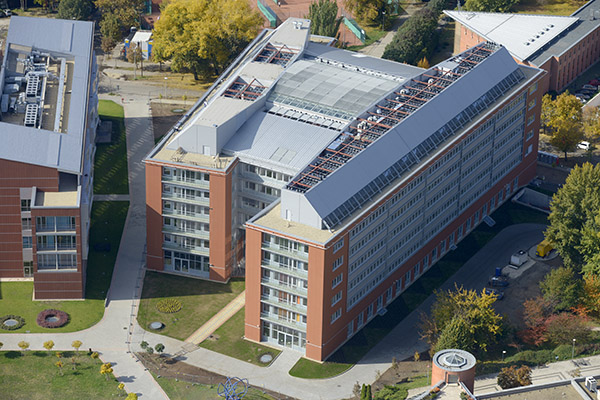As of May 18, the government allowed workplaces to gravitate toward normal working schedules. On May 20, President of the Lorand Eotvos Research Network has withdrawn the safety measurements put into effect on March 10 and March 17, respectively. Directors of the research institutes were given the right to provide the necessary safety measurements in consideration of the occupational safety and health while adhering to local legislation.
As of May 25, RCNS goes back to routine work schedule, the details of which are discussed below.
Colleagues can work under safe working conditions, while there are certain aspects, including but not limited to maintaining social distancing in the in-house cafeteria, that should be addressed. (On June 2, the cafeteria will open its doors for RCNS employees only.) Sanitizing treatment of the air conditioner system will be carried out earlier than usual.
Working from home remains a viable alternative as long as research group leaders give consent to their subordinates on an individual basis after discussion with the director of the institute. For non-researchers, consent is given by the head of the corresponding unit after discussion with the chief financial officer and the director-general. Remote work ensures that labs and offices work with minimal staff and particularly favors employees with kids and those with increased exposure to health hazards.
The administration is ready to operate according to pre-COVID rules. From May 25 onwards, the Directorate for Finance and Administration serves employees according to normal schedule.
Those who are above 60, live with a chronic condition, or are pregnant are advised to work from home.
Foreign employees and students are allowed to work under the same safety measurements as their native colleagues.
Guests and those who deliver packages and goods are allowed to enter the building with prior consent of the director-general or the director of the corresponding institute. Such cases should be reported in advance to the Facility Management Department. Guests without such consent are confined to the reception.
Research subjects can be recruited and are allowed to enter the building without any restrictions on age. To protect the health of employees and research subjects, RCNS will soon develop a regulation for such cases.
International travel is subject to prior consent of the director-general.
Safety regulations in RCNS
Already existing safety measurements were complemented in RCNS. Employees must adhere to the following regulations.
Anyone having a fever or observing signs of COVID-19 or symptoms of flu must stay at home, inform their research group leader, and call their GP. Group leaders are asked to immediately report the case to their director.
Upon arrival, disinfecting hands is advisable. Antiseptic gels are provided in the kitchens.
An acceptable yet effective form of social distancing is required. In small labs and offices, it is best practice to have a single person at any given time. If that is not a viable option, wearing a face mask is compulsory. In a research group, a shift work schedule could be considered as well.
Online meetings should be favored over face to face ones. In conference rooms, employees should be present at numbers that allow keeping an appropriate distance from each other. There should be a break each hour for the proper ventilation of the room. The number of attendees should under no circumstances exceed 20. Deviating from this number requires written consent from the director-general.
Wearing face masks is compulsory unless maintaining the required (min. 1.5-2.0 m) physical distance between people is ensured. RCNS provides face masks for its employees. Face masks may be omitted when employees are working alone or in appropriate distance from each other.
Social distancing should be practiced in elevators as well, meaning that only two people should use the elevator at the same time, and wearing a face mask is compulsory.
May 22, 2020
Laszlo Buday, Acting Director

